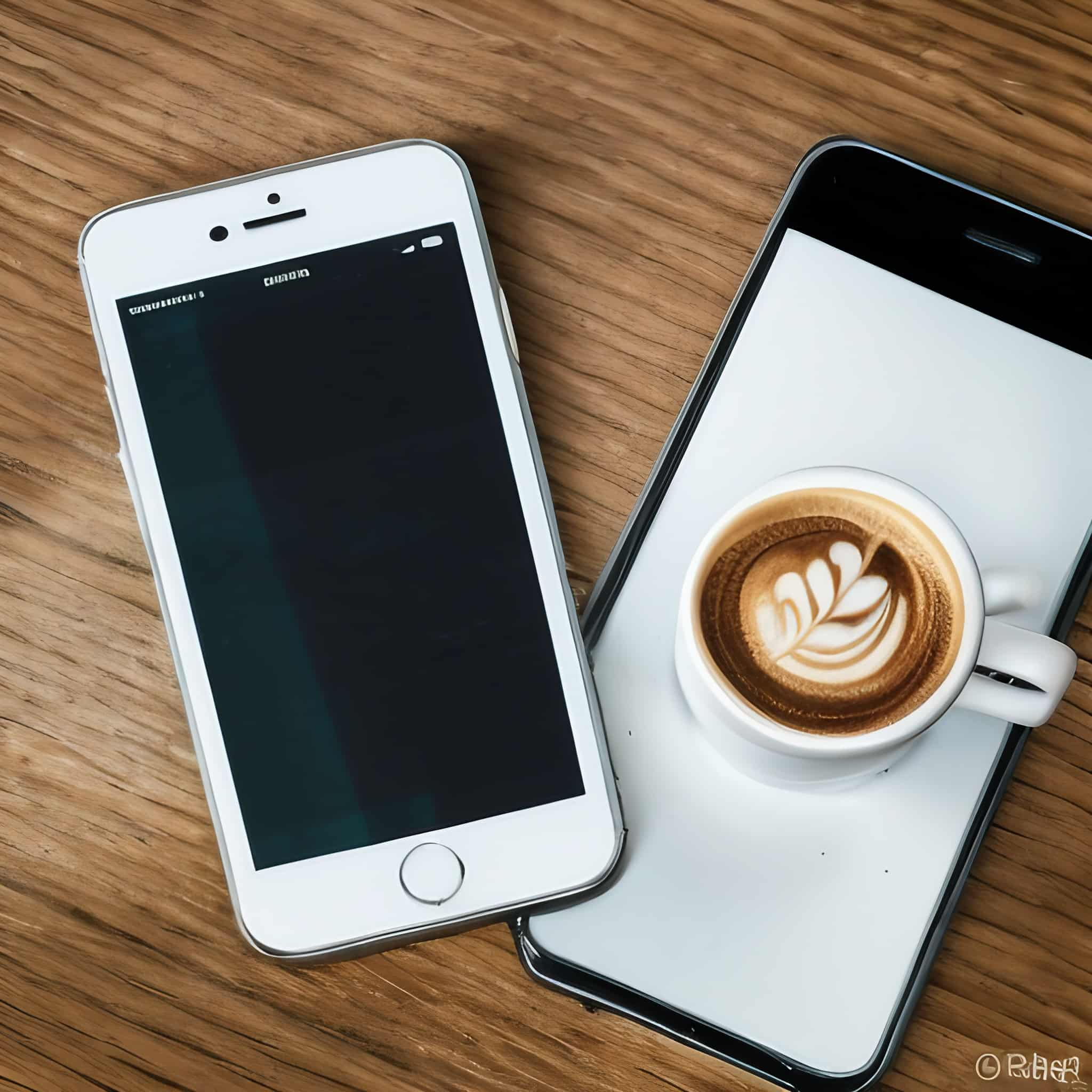It seems that just about everyone has a mobile phone of some sort these days. Many people use their mobile phones as their primary means of accessing the internet.
So it’s no surprise that with the automation in banking, more and more banks are offering mobile banking services to their customers. But what is mobile banking, and how is it different from online banking?
This blog post will explore the differences between mobile and online banking and help you decide which option is best for you!
The Difference: Mobile Banking Vs. Online Banking
When it comes to managing your personal finance, there are a variety of options available. Two of the most popular choices are mobile banking and online banking.
But what exactly is the difference between these two services?
Mobile banking allows you to conduct banking transactions using a mobile device such as a smartphone or tablet. You can do it through a mobile banking app or mobile browser.

On the other hand, internet banking can be accessed on any internet-connected device, such as a laptop or desktop computer.
One advantage of mobile banking is that it’s more convenient than digital banking since you can do it anywhere, anytime.
You can also use mobile banking to check your account balance, transfer funds, do instant online check cashing, and make payments quickly and easily. Another benefit is that the bank’s mobile app has more robust security features than mobile browsers.
However, there are also some disadvantages to mobile banking. For one thing, if you lose your phone or it gets stolen, your confidential information could fall into the wrong hands.
Additionally, mobile apps can sometimes be less user-friendly than websites, and they may not offer all the same features as their desktop counterparts.
So which option is right for you when it comes to mobile banking vs online banking? It depends on your needs and preferences.
Mobile banking is an excellent choice if you want the most convenient way to manage your finances. However, the online portal may be better if security is your top priority.
Try both out and see which is a better fit for you!
What Is Mobile Banking?
Mobile banking is a service that allows customers to conduct financial transactions using a mobile device, such as a smartphone or tablet. Customers can use mobile banking to check account balances, transfer funds, pay bills, and more.
Mobile banking is becoming increasingly popular as more people adopt mobile devices, and banks strive to offer more convenient customer services.

Mobile banking has many advantages, including the ability to conduct transactions anywhere at any time and the increased security features available with some mobile banking apps.
However, some risks are also associated with mobile banking, such as the possibility of losing your android or IOS device or having your savings account hacked.
Overall, mobile banking is a convenient way to manage your finances.
Benefits Of Mobile Banking:
In the 21st century, technological advances have made it possible for people to conduct their retail banking business from the palm of their hand.
Mobile banking refers to using a mobile device, such as a smartphone or tablet, to access banking services.
Although mobile banking has only been around for a few years, it has quickly become popular due to its convenience and ease of use.
Here are some of the benefits of mobile banking:
- Conducting financial transactions anywhere at any time;
- Receiving real-time push notifications of account activity;
- Accessing account balance and transaction history;
- Transferring funds between accounts;
- Paying bills;
- Locating ATMs and branches; and
- Download bank apps to take advantage of additional features, such as mobile check deposits or person-to-person payments.
Mobile banking has revolutionized the way people bank, providing them with greater flexibility and control over their finances.
Whether you are a small business owner who needs to deposit on the go or a busy parent who wants to pay bills while you are at the soccer game, mobile banking can help you manage your finances in a way that is convenient for you.
What Is Online Banking?
Online banking is a system that allows customers of a financial institution to conduct transactions through the use of a computer.
It can include transferring money between accounts, paying bills, or checking account balances. Online banking is typically accessed through a website or mobile app and is often available 24 hours a day, 7 days a week.

Many online banking services are free, but some institutions charge fees for certain online transactions. Online banking has become increasingly popular in recent years due to its convenience and ease of use.
In addition, online banking often provides customers access to additional features, such as budgeting tools and account alerts.
As a result, online banking can be a valuable resource for anyone who wants to manage their finances more effectively.
Benefits Of Online Banking:
Online banking is one of the most convenient ways to manage your finances.
Here are just a few of the many benefits it offers:
Save Time:
Traditional online banking allows you to check your account balance, transfer money, and pay bills without visiting a physical bank. It can save you a lot of time and effort, especially if you live far from a bank or have a busy schedule.
Avoid Fees:
Many banks charge fees for things like using out-of-network ATMs or making overdrafts. However, you can often avoid these fees with online banking by taking advantage of features like mobile check deposits and bill pay.
Get Started Quickly:
Setting up an online banking account is usually very easy and only takes a few minutes. In contrast, opening a traditional bank account can sometimes be lengthy.
Improve Your Financial Literacy:
Online banking can help you become more financially literate by giving you easy access to your account information and transaction history. It can track your spending and budget more effectively and make better financial decisions.
Enjoy Greater Convenience:
Online banking allows you to conduct transactions 24/7 from the comfort of your home. It is much more convenient than visiting a bank during business hours.
Online banking and mobile banking offer customers different advantages.
A mobile banking account allows customers to conduct transactions anywhere at any time, while online banking offers greater convenience and access to additional features.
To understand which option is best for you, read the section below that outline the key difference between mobile banking and online banking portal.
Which Option Is Best For You?
In today’s digital world, there are many options for managing your finances. Two of the most popular methods are virtual banking and online banking.
Both have advantages and disadvantages, so knowing which is right for you is essential.
Mobile banking allows you to access your account information and conduct transactions using your smartphone or tablet.
It is a convenient option if you’re always on the go and don’t have time to visit a physical bank branch. However, mobile banking can be less secure than online banking because it relies on public wifi networks and Bluetooth connections.
Online banking lets you manage your money from any computer with an Internet connection. It is an excellent option if you’re comfortable using online tools and want 24/7 access to your account.
However, online banking can be less personal than mobile banking because you can’t speak to a teller in person if you have questions or concerns.
Ultimately, the best way to manage your finances is the method that works best for you. If you need the flexibility of mobile banking but are worried about security, consider using a secure virtual private network (VPN) when accessing your account.
If you prefer the convenience of online banking but want more personal interaction, look for a bank that offers both online and mobile banking options.
Mobile banking vs. online banking is a topic worth discussing because there are benefits to each method of managing your finances.
While mobile banking is more convenient, online banking often has more features. It’s essential to choose the option that best meets your needs.
Read More: How Do I Endorse a Check for a Minor Child? [+Cashing]
How To Open a Mobile Banking Account?
Nowadays, it is essential to have a mobile banking account. You may miss out on great opportunities to save money if you do not have one. There are many advantages of having a mobile banking account.

For example, you can track your spending, set alerts for when your account balance is low, and transfer money between accounts. You can also use your mobile banking account to pay bills and receive notifications about upcoming payments. In addition, many mobile banking apps offer bonuses and rewards for using their services.
If you are interested in opening a mobile banking account, there are a few things you need to do.
- First, research the options available and find the one that best suits your needs.
- Once you have found the right app or service provider, download the app and create an account. Be sure to use a strong password that is difficult to guess.
- Once your account is set up, you can start using all of the features mobile banking offers.
Risks Of Online Banking
In recent years, online banking has become increasingly popular, offering customers a convenient way to manage their finances from their homes. However, some risks associated with online banking also exist that consumers should be aware of.
One of the biggest dangers is the possibility of identity theft. If hackers can gain access to your account, they could wreak havoc on your finances.
Another risk is phishing scams, in which scammers attempt to trick you into revealing your login information. Additionally, online banking systems can occasionally be down for maintenance or updates, leaving you unable to access your account when you need it most.
Despite these risks, millions worldwide continue using online banking services successfully daily.
By taking simple precautions, such as using strong passwords and being vigilant about suspicious emails, you can help reduce your chances of falling victim to fraud.
Risks Of Mobile Banking
Mobile banking is a convenient way to manage your finances on the go. However, there are also several risks associated with this type of banking.
For example, if you lose your phone, someone could gain access to your account and steal your money. Mobile devices are often less secure than computers, making them more vulnerable to hacking.
Finally, many banks limit the amount of money you can transfer or withdraw using mobile banking. As a result, it is essential to be aware of these risks before using mobile banking.
By understanding the risks involved, you can take steps to protect yourself and your money. For instance, you can set up online banking credentials or PIN for your mobile banking app and avoid storing large amounts of money in your account.
Taking these precautions can help ensure that mobile banking is safe and convenient for you.
How To Keep Your Accounts Safe and Mitigate Risk
It’s essential to keep your bank accounts safe from fraudsters and thieves. Using technology in banking can reduce risks.
Here are a few tips to help you do just that:
Use Two-Factor Authentication
Two-factor authentication (also known as 2FA) is an added layer of security designed to make sure only the correct user can access their account. It requires two distinct steps before logging in. First, users must enter their username and password; then, they must input another type of multi-factor authentication, such as a one-time code sent via text message or email, an answer to a security question, or a response to biometric authentication measures. This ensures that even if someone else knows your password, they won’t be able to log into your account without presenting the second form of identification as well.
Types of 2FA Authentication Methods
- One-time codes sent via text message or email
- Security questions
- Fingerprint authentication
- Facial recognition
- Voice recognition
- QR Code authentication
- Mobile push notifications
- Hardware tokens
Enable Biometric Security Features
Biometric security measures are specific types of technology that use unique physical characteristics such as fingerprints or facial recognition to help verify user identity. This type of security measure is becoming increasingly popular among mobile banking apps. For instance, many allow you to set up fingerprint or face recognition for secure login instead of having to enter a code each time you want to access your account. This makes it much easier and faster for users to log in while still offering an extra level of protection from unauthorized access.
Avoid Unknown/Unofficial App Stores
Criminals often use unofficial app stores to distribute malicious programs designed to steal your banking information. To protect yourself, it’s best to only download official apps from the Google Play Store or Apple App Store. Additionally, make sure you always check the reviews and ratings before downloading any banking app to ensure that it is reliable and secure.
Monitor Credit Reports & Credit Accounts
Criminals can use stolen personal data to open fraudulent bank accounts or credit cards in your name. As a result, it’s important to regularly monitor your credit reports and credit accounts for any suspicious activity. Look out for unauthorized charges or new accounts that you didn’t open. If you spot anything unusual, contact your bank immediately so they can take action quickly.
Avoid Public Wi-Fi
When using public wifi, it is important to remember that anyone with access can potentially intercept your data unless you’re connected to a secure network (look for networks beginning with “https” or indicated as “secure”). While coffee shops with Wi-Fi can be convenient for mobile banking, they come with risks. Even then, hackers may use other techniques, such as packet sniffing or man-in-the-middle attacks. Furthermore, many public hotspots don’t encrypt data which makes them even more vulnerable to attack.
Consequently, it’s best to avoid using public wifi for mobile banking and opt for a more secure connection, such as your home or work network.
Conclusion
In this blog post, we’ve compared mobile banking and online banking. We’ve looked at the pros and cons of each and the risks associated with each type of banking.
Ultimately, it is up to you to decide which type of banking is right for you. However, understanding the risks involved in every kind of banking can help ensure that your accounts are safe and secure.
Following the tips in this blog post can help keep your bank accounts safe from fraudsters and thieves. Thanks for reading!
If you liked this article, please share it with your friends and family.



